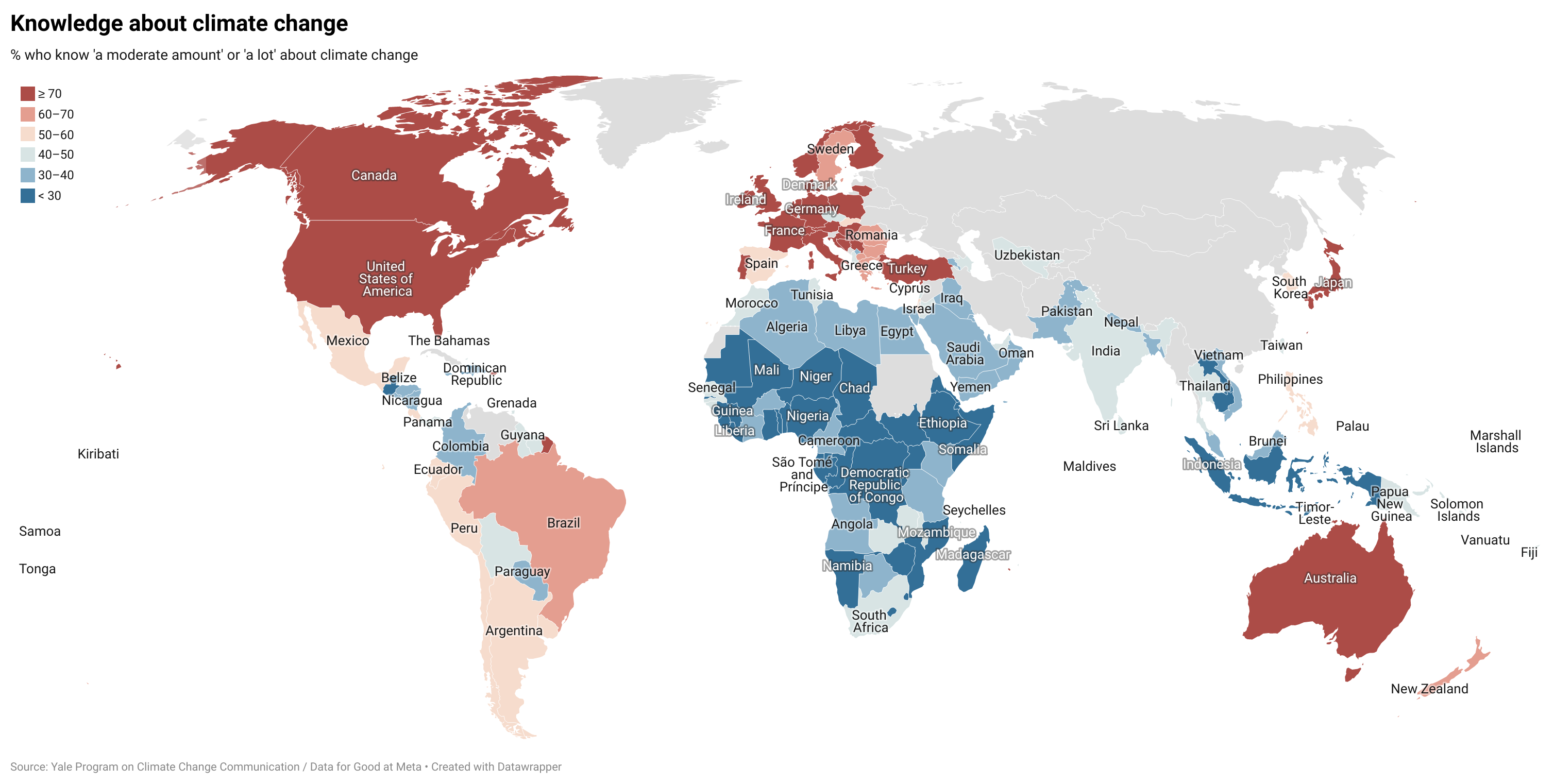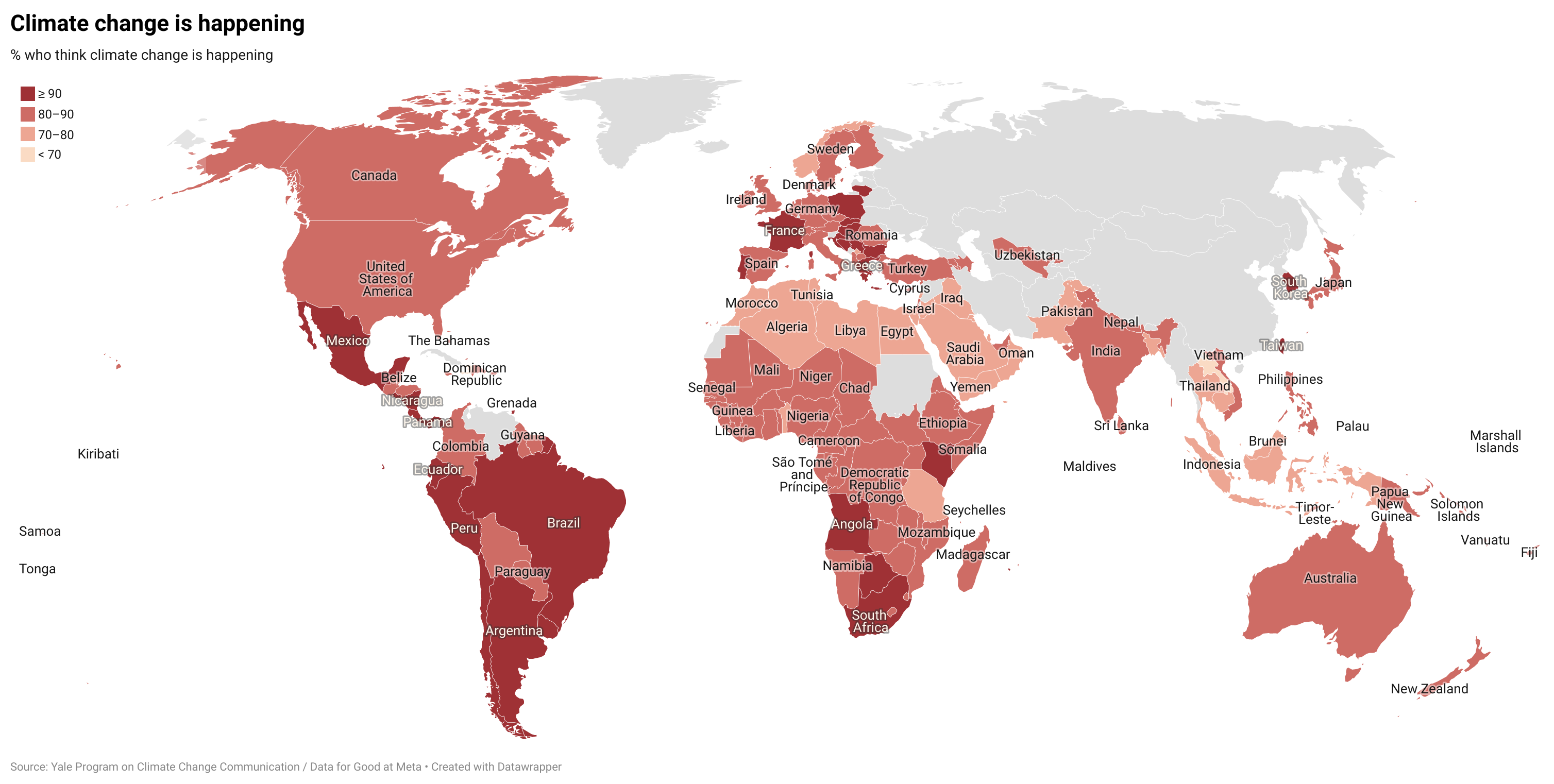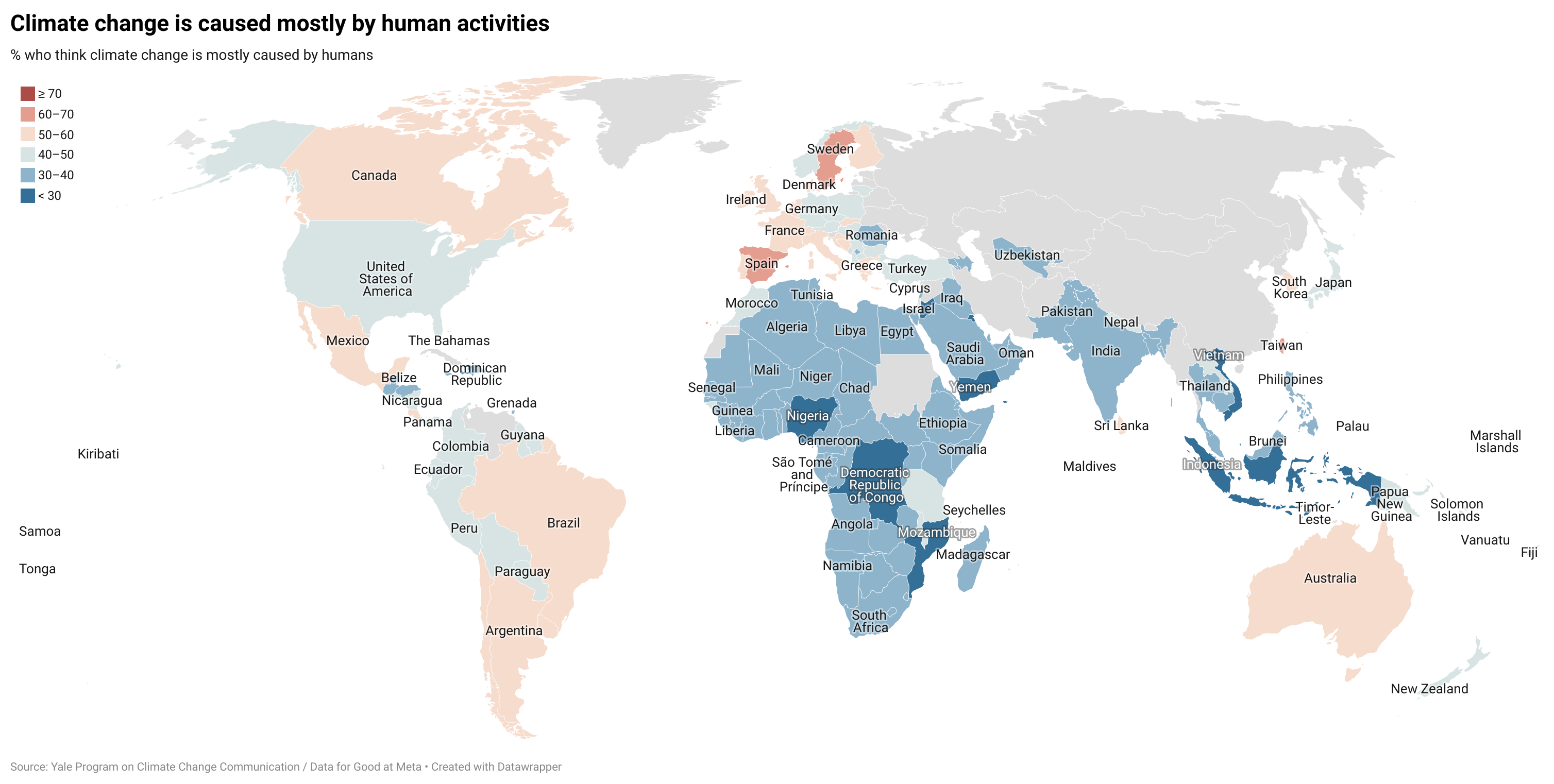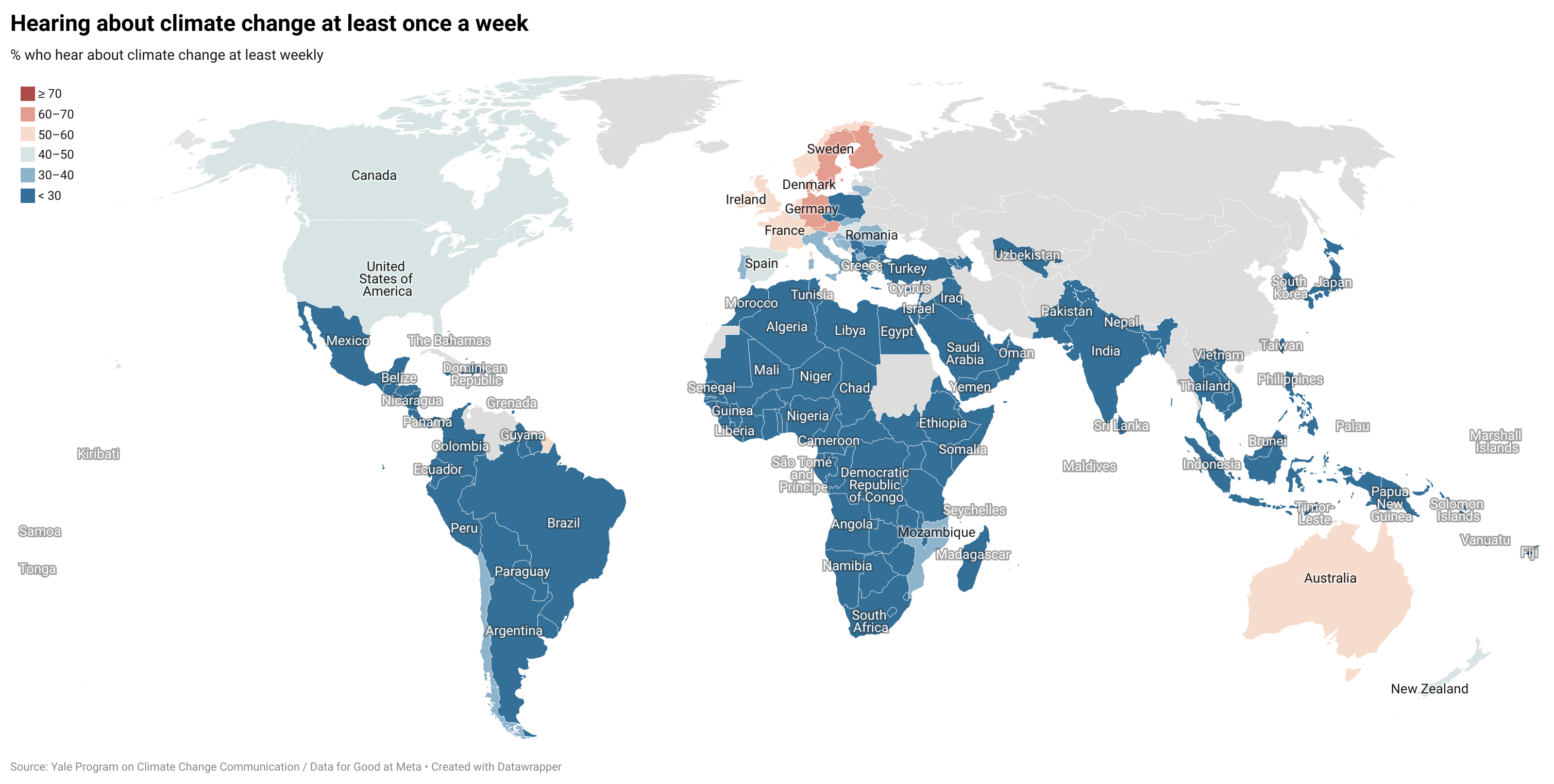Report · Jun 29, 2022
International Public Opinion on Climate Change, 2022
By Anthony Leiserowitz, Jennifer Carman, Nicole Buttermore, Liz Neyens, Seth Rosenthal, Jennifer Marlon, J.W. Schneider and Kelsey Mulcahy
Filed under: Audiences, Beliefs & Attitudes, Behaviors & Actions, Policy & Politics and Climate Impacts
1. Climate Change Knowledge, Beliefs, and Engagement
1.1 Respondents in many countries, territories, and groups say they know at least a moderate amount about climate change.
A majority of respondents (>50% respondents) in 46 of the 110 total countries, territories, and geographic groups (hereafter, “areas”) surveyed say they know at least a moderate amount about climate change. Respondents in Finland (92%), Hungary (90%), Germany (84%), and Croatia (83%) are the most likely to say they know “a lot” or “a moderate amount.”
By contrast, in many areas, substantial percentages of respondents say they have “never heard of” climate change. Respondents in Benin (34%), the Democratic Republic of the Congo, Nigeria, and Haiti (all 32%) are the most likely to say they have never heard of it.
Comparing world regions (see Appendix II), respondents in Europe are most likely to say they know at least a moderate amount about climate change, with majorities in 27 out of 31 areas saying so. In contrast, respondents in Sub-Saharan Africa are least likely, with no majorities saying so in any area.
It is also important to note that this survey was conducted on the Facebook platform, so it likely underrepresents populations with lower incomes and literacy rates. Prior research has found that members of these groups are more likely to know little or nothing about climate change.
1.2 The great majority of respondents think climate change is happening.
After being asked about their current level of knowledge about climate change, respondents were given a short definition of climate change: “Climate change refers to the idea that the world’s average temperature has been increasing over the past 150 years, will increase more in the future, and that the world’s climate will change as a result. What do you think: Do you think climate change is happening?”
The great majority of respondents in all 110 surveyed areas say that they think climate change is happening. This includes nine in ten or more respondents in 21 countries and territories, including Hungary (96%), Portugal (95%), and Costa Rica (94%). The percentage is lowest, but still high, in Laos (67%), Haiti (67%), and Bangladesh (70%).
1.3 Respondents in nearly all areas think climate change is at least partially caused by humans.
A majority of respondents in 108 of the 110 surveyed areas say that climate change is at least partially caused by human activities (i.e., that it is either “caused mostly by human activities” or is “caused about equally by human activities and natural changes”). However, among those, majorities in only 26 areas say that climate change is mostly caused by human activities (see map). Respondents in Spain (65%), Sweden (61%), and Taiwan (60%) are the most likely to say that climate change is mostly caused by human activities, while respondents in Indonesia (18%), Yemen (21%), and Haiti (23%) are the least likely. Respondents in Haiti (35%) are the most likely to say climate change is caused mostly by natural changes in the environment, followed by respondents in the Democratic Republic of the Congo (28%) and the Dominican Republic (28%).
Comparing results by region (see Appendix II), respondents in Europe are the most likely to say that climate change is caused mostly by human activities (majorities in 16 out of 31 areas), while respondents in Southwest Asia and North Africa, as well as Sub-Saharan Africa, are the least likely (majorities in zero areas).
1.4 Majorities in relatively few areas say they hear about climate change at least once per week.
A majority of respondents in relatively few (12 of the 110) surveyed areas say that they hear about climate change in their daily lives (such as from TV, newspapers, social media, or conversations with friends and family) at least once per week. Respondents in Sweden (66%), Germany (66%), and Finland (64%) are most likely to say they hear about climate change at least once a week, while respondents in Yemen (7%), Algeria (9%), and Cambodia (9%) are least likely.
Respondents in Europe are more likely to say that they hear about climate change in their daily lives at least once per week compared with respondents in every other region (see Appendix II).



